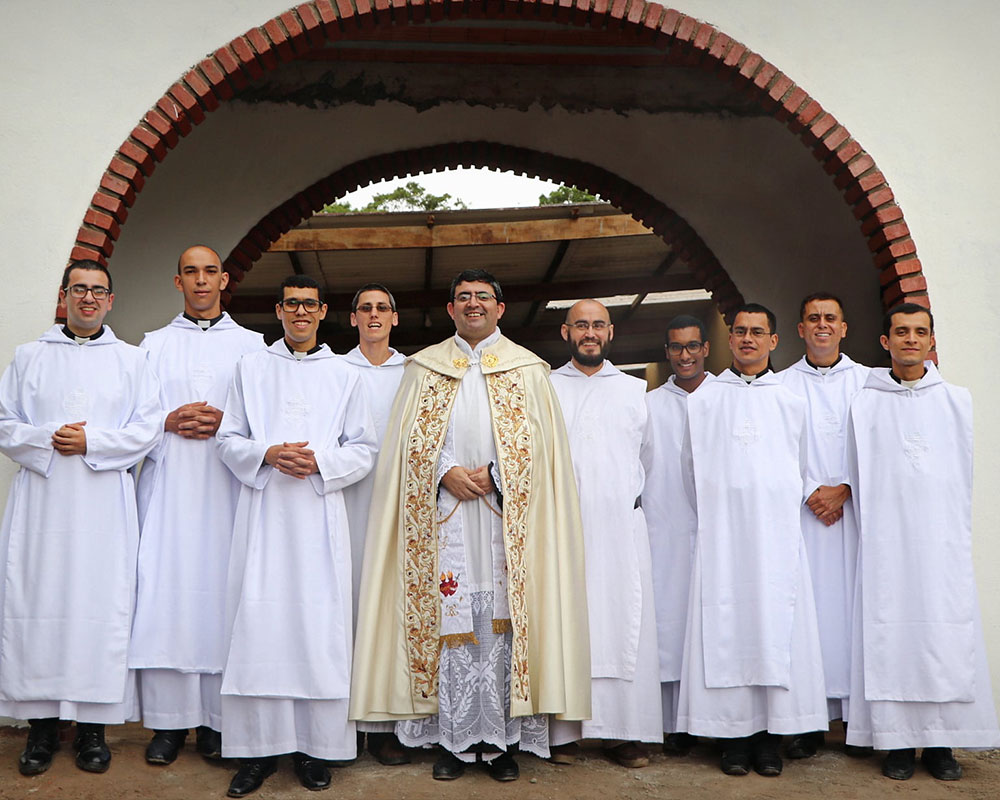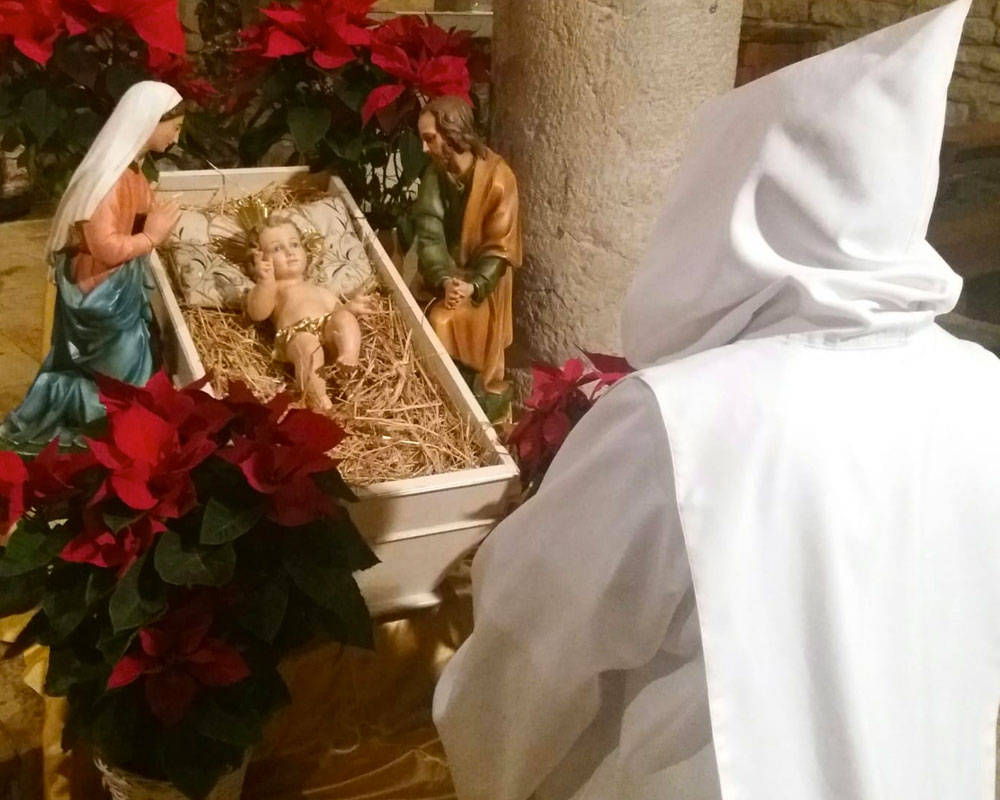Facebook
Youtube
Instagram
The male contemplative branch is also part of the Institute of the Incarnate Word. It is composed of those houses where the religious dedicate themselves to the contemplative life in conformity with the provisions of proper law
Constitutions, 274
The entire life of religious should be ordered to contemplation as a constitutive element of Christian perfection.[1] However, “it is necessary that some of Christ’s followers . . . should give expression to this contemplative character of the Church by actually withdrawing into solitude.”[2] This has been the mission of monks, who were and continue being witnesses to the transcendent, since with their vocation and way of life they proclaim that God is everything and that He must be all in all.[3]
With the foundation of the contemplative branch of our Institute, we desire to respond to the Second Vatican Council’s request: “The monastic life, that venerable institution which in the course of a long history has won for itself notable renown in the Church and in human society, should be preserved with care and its authentic spirit permitted to shine forth ever more splendidly both in the East and the West.”[4]

Our contemplative religious live in the desert of total abandonment of the world, reminding the world that its end is not itself, but rather its Author and Redeemer. They are the vanguard of the movement of the return of all creation to the Creator, and they hurry to bring this about, renouncing all and pointing directly to the End.
Those who, moved by God, embrace the contemplative life within our religious family will consecrate their lives to contemplating and living the mystery of the Incarnate Word,[1] especially in its fullest expression of His abasement which is the cross. Invited to retreat to the desert, “Come away by yourselves to a deserted place” (Mk 6:31), they will leave everything for Him; they will take up their cross, and they will follow Him, because He Himself has said, “Whoever wishes to come after me must deny himself, take up his cross, and follow me” (Mt 16:24).

The contemplative branch of the Institute of the Incarnate Word will carry out the specific end of our Religious Family with their particular consecration, founding the Institute’s entire work[6] in the unum necessarium (Lk 10:42), since religious who are given solely to contemplation contribute to the missionary work of the Church with their prayers, “because it is God who sends workers into His harvest when He is asked to do so (cf. Matt. 9:38), God who opens the minds of non-Christians to hear the Gospel (cf. Acts 16:14), and God who fructifies the word of salvation in their hearts (cf. 1 Cor. 3:7).”[7]
Moved by faith in the mystery of the communion of the saints, the contemplative religious will imitate the praying Christ, and will offer himself to God so that through Him all the members of the Church might grow in holiness, atoning for their own sins, those of the other members of the Institute and of the whole world, asking for pardon and mercy for all.[8]
They must also be the vanguard of our Institute and guardians of its spirit, showing to everyone the primacy of the love of God and the value of the mortifying virtues of silence, penance, obedience, sacrifice, and oblative love.

[1] Thomas Aquinas, Contra impugnanes Dei cultum et religionem
[2] Venite Seorsum, 1
[3] Cf. I Cor 15:28.
[4] PC, 9.
[5] “This is because [the contemplative] life implies a permanent dedication to God and to believing and loving His mystery and His plan of salvation for all men” (Directory of Spirituality, 220).
[6] “They desire to dedicate themselves to the only necessary thing; they have chosen the best part.” (Directory of Spirituality, 93).
[7] Ad Gentes, 40
[8] Contemplative monks “For these offer to God a sacrifice of praise which is outstanding. Moreover the manifold results of their holiness lends luster to the people of God which is inspired by their example and which gains new members by their apostolate which is as effective as it is hidden” (PC, 7).
Share your prayer request with religious and friends of the IVE here. You can see other prayer requests by subscribing to Resound http://iveamerica.org/#prayerrequest